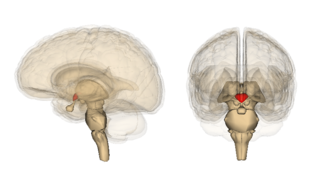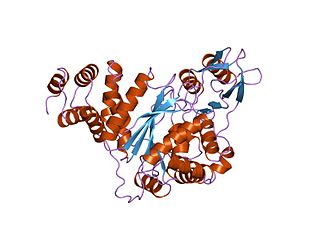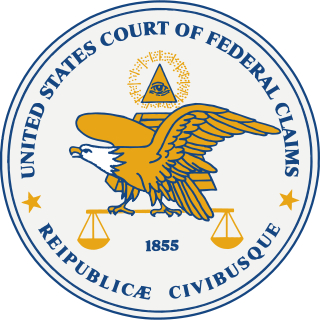Related Research Articles

Transverse myelitis (TM) is a rare neurological condition wherein the spinal cord is inflamed. The adjective transverse implies that the spinal inflammation (myelitis) extends horizontally throughout the cross section of the spinal cord; the terms partial transverse myelitis and partial myelitis are sometimes used to specify inflammation that affects only part of the width of the spinal cord. TM is characterized by weakness and numbness of the limbs, deficits in sensation and motor skills, dysfunctional urethral and anal sphincter activities, and dysfunction of the autonomic nervous system that can lead to episodes of high blood pressure. Signs and symptoms vary according to the affected level of the spinal cord. The underlying cause of TM is unknown. The spinal cord inflammation seen in TM has been associated with various infections, immune system disorders, or damage to nerve fibers, by loss of myelin. As opposed to leukomyelitis which affects only the white matter, it affects the entire cross-section of the spinal cord. Decreased electrical conductivity in the nervous system can result.
Encephalopathy means any disorder or disease of the brain, especially chronic degenerative conditions. In modern usage, encephalopathy does not refer to a single disease, but rather to a syndrome of overall brain dysfunction; this syndrome has many possible organic and inorganic causes.

Wernicke encephalopathy (WE), also Wernicke's encephalopathy, or wet brain is the presence of neurological symptoms caused by biochemical lesions of the central nervous system after exhaustion of B-vitamin reserves, in particular thiamine (vitamin B1). The condition is part of a larger group of thiamine deficiency disorders that includes beriberi, in all its forms, and alcoholic Korsakoff syndrome. When it occurs simultaneously with alcoholic Korsakoff syndrome it is known as Wernicke–Korsakoff syndrome.
Opsoclonus myoclonus syndrome (OMS), also known as opsoclonus-myoclonus-ataxia (OMA), is a rare neurological disorder of unknown cause which appears to be the result of an autoimmune process involving the nervous system. It is an extremely rare condition, affecting as few as 1 in 10,000,000 people per year. It affects 2 to 3% of children with neuroblastoma and has been reported to occur with celiac disease and diseases of neurologic and autonomic dysfunction.
Autism spectrum disorders (ASD) are neurodevelopmental disorders that begin in early childhood, persist throughout adulthood, and affect three crucial areas of development: communication, social interaction and restricted patterns of behavior. There are many conditions comorbid to autism spectrum disorders such as attention-deficit hyperactivity disorder and epilepsy.
Hypotonia is a state of low muscle tone, often involving reduced muscle strength. Hypotonia is not a specific medical disorder, but a potential manifestation of many different diseases and disorders that affect motor nerve control by the brain or muscle strength. Hypotonia is a lack of resistance to passive movement, whereas muscle weakness results in impaired active movement. Central hypotonia originates from the central nervous system, while peripheral hypotonia is related to problems within the spinal cord, peripheral nerves and/or skeletal muscles. Severe hypotonia in infancy is commonly known as floppy baby syndrome. Recognizing hypotonia, even in early infancy, is usually relatively straightforward, but diagnosing the underlying cause can be difficult and often unsuccessful. The long-term effects of hypotonia on a child's development and later life depend primarily on the severity of the muscle weakness and the nature of the cause. Some disorders have a specific treatment but the principal treatment for most hypotonia of idiopathic or neurologic cause is physical therapy and/or occupational therapy for remediation.
Thiomersal is a mercury compound which is used as a preservative in some vaccines. Anti-vaccination activists promoting the incorrect claim that vaccination causes autism have asserted that the mercury in thiomersal is the cause. There is no scientific evidence to support this claim. The idea that thiomersal in vaccines might have detrimental effects originated with anti-vaccination activists and was sustained by them and especially through the action of plaintiffs' lawyers.

The causes of autism are environmental or genetic factors that predispose an individual to develop autism, also known as autism spectrum disorder (ASD). Many causes of autism have been proposed, but understanding of the theory of causation of autism is incomplete. Attempts have been made to incorporate the known genetic and environmental causes into a comprehensive causative framework. ASD is a neurodevelopmental disorder marked by impairments in communicative ability and social interaction and restricted/repetitive behaviors, interests, or activities not suitable for the individual's developmental stage. The severity of symptoms and functional impairment vary between individuals.

Paul Allan Offit is an American pediatrician specializing in infectious diseases, vaccines, immunology, and virology. He is the co-inventor of a rotavirus vaccine. Offit is the Maurice R. Hilleman Professor of Vaccinology, professor of pediatrics at the Perelman School of Medicine at the University of Pennsylvania, former chief of the Division of Infectious Diseases (1992–2014), and the director of the Vaccine Education Center at the Children's Hospital of Philadelphia.

The Office of Special Masters of the U.S. Court of Federal Claims, popularly known as "vaccine court", administers a no-fault system for litigating vaccine injury claims. These claims against vaccine manufacturers cannot normally be filed in state or federal civil courts, but instead must be heard in the U.S. Court of Federal Claims, sitting without a jury.

Steven Paul Novella is an American clinical neurologist and associate professor at Yale University School of Medicine. Novella is best known for his involvement in the skeptical movement as a host of The Skeptics' Guide to the Universe podcast and as the president of the New England Skeptical Society. He is a fellow of the Committee for Skeptical Inquiry (CSI).

Mady Hornig is an American psychiatrist and an associate professor of epidemiology at Columbia University's Mailman School of Public Health. A physician-scientist, her research involves clinical, epidemiological, and animal model research on autism and related neurodevelopmental conditions. She directs the clinical core of an international investigation of the role of Borna disease virus in human mental illness and participates as a key investigator for the Autism Birth Cohort (ABC) project, a large prospective epidemiological study, based in Norway, that is identifying how genes and timing interact with environmental agents preceding the onset of autism spectrum diagnoses. In 2006, she was appointed as guest professor at the school of basic medical science of Beijing University in Beijing, China.

Mitochondrial neurogastrointestinal encephalopathy syndrome (MNGIE) is a rare autosomal recessive mitochondrial disease. It has been previously referred to as polyneuropathy, ophthalmoplegia, leukoencephalopathy, and POLIP syndrome. The disease presents in childhood, but often goes unnoticed for decades. Unlike typical mitochondrial diseases caused by mitochondrial DNA (mtDNA) mutations, MNGIE is caused by mutations in the TYMP gene, which encodes the enzyme thymidine phosphorylase. Mutations in this gene result in impaired mitochondrial function, leading to intestinal symptoms as well as neuro-ophthalmologic abnormalities. A secondary form of MNGIE, called MNGIE without leukoencephalopathy, can be caused by mutations in the POLG gene.

Autism's False Prophets: Bad Science, Risky Medicine, and the Search for a Cure is a 2008 book by Paul Offit, a vaccine expert and chief of infectious diseases at Children's Hospital of Philadelphia. The book focuses on the controversy surrounding the now discredited link between vaccines and autism. The scientific consensus is that no convincing scientific evidence supports these claims, and a 2011 journal article described the vaccine-autism connection as "the most damaging medical hoax of the last 100 years".

Classic autism, also known as childhood autism, autistic disorder, (early) infantile autism, infantile psychosis, Kanner's autism,Kanner's syndrome, or just autism, is a neurodevelopmental condition first described by Leo Kanner in 1943. It is characterized by atypical and impaired development in social interaction and communication as well as restricted, repetitive behaviors, activities, and interests. These symptoms first appear in early childhood and persist throughout life.

Michelle Cedillo v. Secretary of Health and Human Services, also known as Cedillo, was a court case involving the family of Michelle Cedillo, an autistic girl whose parents sued the United States government because they believed that her autism was caused by her receipt of both the measles-mumps-and-rubella vaccine and thimerosal-containing vaccines. The case was a part of the Omnibus Autism Proceeding, where petitioners were required to present three test cases for each proposed mechanism by which vaccines had, according to them, caused their children's autism; Cedillo was the first such case for the MMR-and-thimerosal hypothesis.
Martha Herbert is an American physician and assistant professor of neurology at Harvard Medical School and pediatric neurologist at Massachusetts General Hospital. Herbert is also director of the TRANSCEND program at the Athinoula A. Martinos Center for Biomedical Imaging.
Daniel A. Rossignol, MD, FAAFP, is a family medicine doctor. Rossignol runs the Rossignol Medical Center, with offices in Melbourne, Florida and in Aliso Viejo, California. He also works at the Wisconsin Integrative Hyperbaric Center in Fitchburg, Wisconsin, and is a member of the physician advisory board for The Autism Community in Action. Rossignol is known for his advocacy of certain autism therapies.
Richard Eugene Frye is an American autism researcher and associate professor at Arizona Children's Hospital in Phoenix, and formerly of the University of Arkansas for Medical Sciences's department of pediatrics, as well as the Director of the Autism Multispecialty Clinic at Arkansas Children’s Hospital. Frye was formerly a faculty member at the University of Texas Health Science Center at Houston's division of child and adolescent neurology.
Extensive investigation into vaccines and autism spectrum disorder has shown that there is no relationship between the two, causal or otherwise, and that the vaccine ingredients do not cause autism. Vaccinologist Peter Hotez researched the growth of the false claim and concluded that its spread originated with Andrew Wakefield's fraudulent 1998 paper, with no prior paper supporting a link.
References
- ↑ "Jon Poling". HANNAH Center Website. Archived from the original on 23 October 2013. Retrieved 12 October 2013.
- ↑ Wallis, Claudia (10 March 2008). "Case Study: Autism and Vaccines". Time . Retrieved 11 October 2013.
- ↑ "Poling v. Secretary of Health and Human Services". Neurodiversity.com. Retrieved 11 October 2013.
- ↑ Poling, J. S.; Frye, R. E.; Shoffner, J.; Zimmerman, A. W. (2006). "Developmental regression and mitochondrial dysfunction in a child with autism". Journal of Child Neurology. 21 (2): 170–172. doi:10.1177/08830738060210021401. PMC 2536523 . PMID 16566887.
- ↑ Poling, J. S. (2008). "Vaccines and Autism Revisited". New England Journal of Medicine. 359 (6): 655–656. doi:10.1056/NEJMc086269. PMID 18687652.
- ↑ Doheny, Kathleen (6 March 2008). "Dad in Autism-Vaccine Case Speaks Out". WebMD . Retrieved 11 October 2013.
- ↑ Parikh, Rahul K. (13 March 2008). "What the Poling Autism Case Means". Autism Watch . Retrieved 11 October 2013.
- 1 2 Harris, Gardiner (8 March 2008). "Deal in an Autism Case Fuels Debate on Vaccine". The New York Times . Retrieved 13 October 2013.
- ↑ Parker-Pope, Tara (12 April 2008). "Will a 9-Year-Old Change the Vaccine Debate?". The New York Times . Retrieved 11 October 2013.
- ↑ Stobbe, Mike (7 March 2008). "Analysis: Vaccine-autism link unproven". USA Today . Retrieved 13 October 2013.
- ↑ Offit, Paul A. (2008). "Vaccines and Autism Revisited — the Hannah Poling Case". New England Journal of Medicine. 358 (20): 2089–2091. doi: 10.1056/NEJMp0802904 . PMID 18480200.
- ↑ Novella, Steven (21 July 2008). "Celebrity Smackdown: Amanda Peet vs Jenny McCarthy". Neurologica Blog. Retrieved 13 October 2013.
- ↑ "Dr. Jon Poling to Dr. Steven Novella: Don't Attack the Moms - AGE OF AUTISM".
- ↑ Novella, Steven (23 July 2008). "Autism and Vaccines: Responding to Poling and Kirby". Neurologica Blog. Retrieved 13 October 2013.
- ↑ Carey, Matt (3 September 2010). "Damages awarded in the Poling case?". Left Brain Right Brain. Retrieved 9 November 2013.